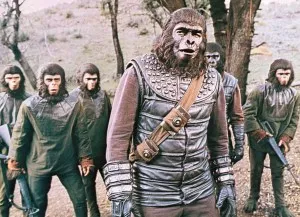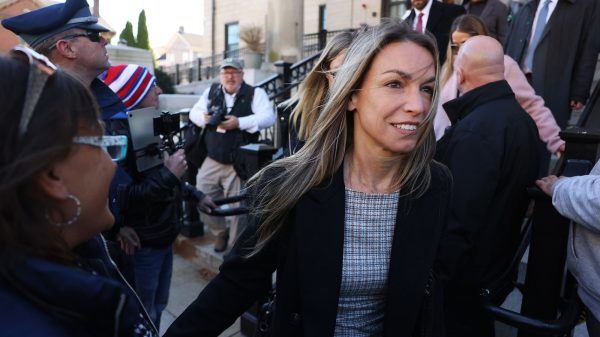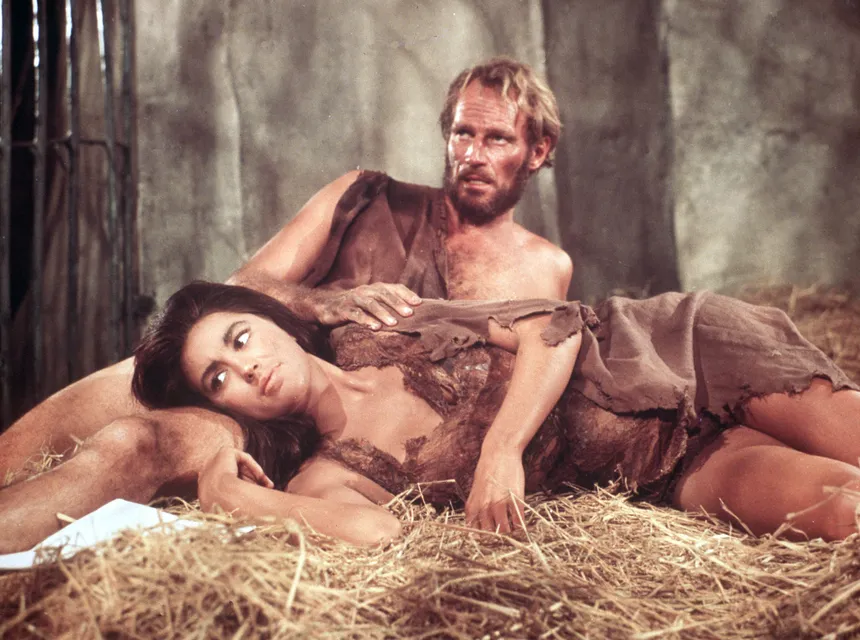In the era of Hollywood’s rapid transformation, Charlton Heston, a prominent movie star, played a pivotal role in shaping the fate of the “Planet of the Apes” franchise. In the 1960s, the concept of sequels was not as prevalent as it is today, and Heston, being a renowned actor of his time, attempted to halt the production of subsequent films, citing artistic integrity as his primary concern.
In 1968, the original “Planet of the Apes” film was released, directed by Franklin Schaffner and starring Heston as the protagonist, Colonel George Taylor. The film’s groundbreaking storytelling and poignant message resonated with audiences worldwide. However, 20th Century Fox, the film’s production company, was eager to capitalize on the movie’s success by creating a sequel.
Heston, determined to protect the original film’s legacy, refused to participate in the production of the sequel, despite the studio’s persistence. He believed that the story had run its course and that a sequel would undermine the artistic merits of the original film. Fox ultimately released “Beneath the Planet of the Apes” in 1970, which featured a new cast of characters and a convoluted storyline that failed to impress audiences.
Heston’s commitment to protecting the integrity of the original film was unwavering, and he even went as far as to suggest a dramatic conclusion, where Taylor’s character would detonate a doomsday bomb, wiping out humanity. Although his intention was genuine, the outcome of his actions was ultimately unsatisfactory.

A Still From Planet of the Apes 1968 (Via IMDB)
As the “Planet of the Apes” franchise continued to thrive, Heston’s efforts to stop the sequel proved unsuccessful. His stance on artistic integrity stood as a testament to the changing terrain of Hollywood, where commercialism often took precedence over creative genius. The film industry’s shift towards sequels and reboots, where franchise value was prioritized over the people bringing the story to life, was a far cry from the era where Heston and his contemporaries dominated the Hollywood terrain.
In retrospect, Heston’s actions, although idealistic, reflected his dedication to the original film’s message and his desire to preserve its artistic value. Despite his efforts, the franchise continued to flourish, a testament to the power of storytelling and the enduring appeal of the “Planet of the Apes” saga.
As the film industry continues to evolve, the legacy of Heston’s fight against the sequel monster serves as a reminder of the importance of creative integrity and the value of original storytelling.
























